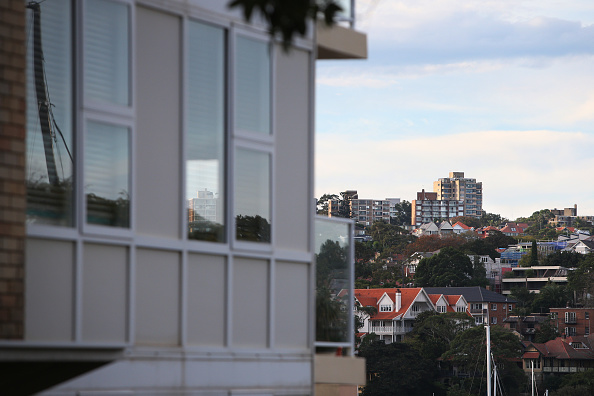Why Remote Work Could Lead to Less Innovation
A new study suggests that when employees from one company run into employees from another company, creative sparks fly
Do chance encounters among employees of different Silicon Valley companies in coffee shops, restaurants and other public places lead to innovation? The answer is yes, say researchers who examined such “knowledge spillovers” in a study that may have implications for today’s work-from-home culture.
The researchers—Keith Chen of the University of California, Los Angeles, and David Atkin and Anton Popov of the Massachusetts Institute of Technology—tracked the locations of 425,000 phones using commercially available cellphone-location data. Though the data is anonymous and linked only to the unique ID number of each phone, the researchers surmised where the phone owners worked by looking at where the phones spent large parts of the workday, using a map of buildings occupied by Silicon Valley companies that have filed patents.
Examining instances where phone owners went outside the office and ended up near someone from another Silicon Valley company, they found 218 million episodes in which two workers from different companies were in the same place between September 2016 and November 2017.
For their study, they considered only situations in which both people were near each other for at least a half-hour, and used a probability technique to eliminate meetings that might have been arranged in advance. They also assumed that many of these people bumped into someone they already knew, such as a former colleague.
Sharing knowledge
Such chance meetings “may spark a conversation that leads to a transfer of knowledge or a collaboration,” the researchers wrote.
Next, the research team pulled up patent applications filed by the companies of the employees. Such applications list relevant patents from other companies in so-called patent citations. Patent citations are “one measure of which firms are influencing each other and how firms are sharing ideas,” says Prof. Chen, who studies behavioral economics and strategy at UCLA’s Anderson School of Management.
The researchers then worked backward in time. They looked for places where employees of a patent-filing company may have crossed paths with workers from companies cited in the patent application.
“We rewind the clock to a year before when they would have been developing this technology,” says Prof. Chen. “What school were they dropping their kids off at, what mall were they shopping at, what bar do they frequent. And you infer who was at that bar when they were there,” based on the phone-location data.
The goal, Prof. Chen says, is “to connect workers of the firm that is going to file the patent, at the establishment where we infer that patent was innovated, with what other workers they were interacting with.”
Next, the researchers calculated the overall number of such citations that appear to have been linked to unplanned encounters. The upshot: The researchers say that without these encounters, there would have been about 8% fewer cross-firm patent citations in the period covered by the phone-location data.
“There is a tremendous correlation between my workers’ meeting a lot with your workers, and my workers’ citing your workers’ patent,” says Prof. Chen.
The innovation boost from the encounters, by the team’s calculations, is about twice as large as a similar effect found by other research that looked for knowledge transfer based on whether two companies’ offices are near each other, Prof. Chen says.
Their study comes with some caveats. The researchers don’t know whether these employees actually spoke when they were in the same location, or, if they spoke, what they talked about. And they don’t know whether the workers’ jobs would have facilitated a tech discussion—they might have involved a Google HR staffer and an Apple maintenance person.
Still, the report shines a light on what some experts have long suspected: that random conversations involving people in similar industries can increase innovation.
Enrico Moretti, an economics professor at the University of California, Berkeley, says the study “significantly advances our understanding of knowledge spillovers and how they shape the geography of innovation.” Prof. Moretti, who says he has been working on the topic for 25 years, says, “I find this paper to be one of the most direct and convincing pieces of evidence on this question. It provides important insights into why Silicon Valley-style clusters of innovation exist.”
Remote work’s impact
Though the study involved cellphone data from before Covid, the researchers say it has implications for an era when many people work all or part of the time from home.
The researchers looked at people who occasionally worked from home in the study period, based on where their phones were located during daytime hours, and then at how that affected their probability of attending planned or serendipitous meetings with someone from another company who didn’t work from home, Prof. Chen says.
Looking at two hypothetical companies, the researchers extrapolated that if one-half of employees at each business work from home, their meetings of all types—serendipitous and planned—would fall 35% and patent citations between the companies would decline almost 12%.
“We think this means information exchange between firms is decreasing,” Prof. Chen says. “It is worrying. These businesses co-locate for a reason. If they can’t learn from each other, we think that is a big deal.”
“Presumably,” he adds, “an even bigger effect is the harm that it does to serendipity and flow of information and innovation within the firm.”
 Copyright 2020, Dow Jones & Company, Inc. All Rights Reserved Worldwide. LEARN MORE
Copyright 2020, Dow Jones & Company, Inc. All Rights Reserved Worldwide. LEARN MORE
This stylish family home combines a classic palette and finishes with a flexible floorplan
Just 55 minutes from Sydney, make this your creative getaway located in the majestic Hawkesbury region.
As Paris makes its final preparations for the Olympic games, its residents are busy with their own—packing their suitcases, confirming their reservations, and getting out of town.
Worried about the hordes of crowds and overall chaos the Olympics could bring, Parisians are fleeing the city in droves and inundating resort cities around the country. Hotels and holiday rentals in some of France’s most popular vacation destinations—from the French Riviera in the south to the beaches of Normandy in the north—say they are expecting massive crowds this year in advance of the Olympics. The games will run from July 26-Aug. 1.
“It’s already a major holiday season for us, and beyond that, we have the Olympics,” says Stéphane Personeni, general manager of the Lily of the Valley hotel in Saint Tropez. “People began booking early this year.”
Personeni’s hotel typically has no issues filling its rooms each summer—by May of each year, the luxury hotel typically finds itself completely booked out for the months of July and August. But this year, the 53-room hotel began filling up for summer reservations in February.
“We told our regular guests that everything—hotels, apartments, villas—are going to be hard to find this summer,” Personeni says. His neighbours around Saint Tropez say they’re similarly booked up.
As of March, the online marketplace Gens de Confiance (“Trusted People”), saw a 50% increase in reservations from Parisians seeking vacation rentals outside the capital during the Olympics.
Already, August is a popular vacation time for the French. With a minimum of five weeks of vacation mandated by law, many decide to take the entire month off, renting out villas in beachside destinations for longer periods.
But beyond the typical August travel, the Olympics are having a real impact, says Bertille Marchal, a spokesperson for Gens de Confiance.
“We’ve seen nearly three times more reservations for the dates of the Olympics than the following two weeks,” Marchal says. “The increase is definitely linked to the Olympic Games.”

Getty Images
According to the site, the most sought-out vacation destinations are Morbihan and Loire-Atlantique, a seaside region in the northwest; le Var, a coastal area within the southeast of France along the Côte d’Azur; and the island of Corsica in the Mediterranean.
Meanwhile, the Olympics haven’t necessarily been a boon to foreign tourism in the country. Many tourists who might have otherwise come to France are avoiding it this year in favour of other European capitals. In Paris, demand for stays at high-end hotels has collapsed, with bookings down 50% in July compared to last year, according to UMIH Prestige, which represents hotels charging at least €800 ($865) a night for rooms.
Earlier this year, high-end restaurants and concierges said the Olympics might even be an opportunity to score a hard-get-seat at the city’s fine dining.
In the Occitanie region in southwest France, the overall number of reservations this summer hasn’t changed much from last year, says Vincent Gare, president of the regional tourism committee there.
“But looking further at the numbers, we do see an increase in the clientele coming from the Paris region,” Gare told Le Figaro, noting that the increase in reservations has fallen directly on the dates of the Olympic games.
Michel Barré, a retiree living in Paris’s Le Marais neighbourhood, is one of those opting for the beach rather than the opening ceremony. In January, he booked a stay in Normandy for two weeks.
“Even though it’s a major European capital, Paris is still a small city—it’s a massive effort to host all of these events,” Barré says. “The Olympics are going to be a mess.”
More than anything, he just wants some calm after an event-filled summer in Paris, which just before the Olympics experienced the drama of a snap election called by Macron.
“It’s been a hectic summer here,” he says.

AFP via Getty Images
Parisians—Barré included—feel that the city, by over-catering to its tourists, is driving out many residents.
Parts of the Seine—usually one of the most popular summertime hangout spots —have been closed off for weeks as the city installs bleachers and Olympics signage. In certain neighbourhoods, residents will need to scan a QR code with police to access their own apartments. And from the Olympics to Sept. 8, Paris is nearly doubling the price of transit tickets from €2.15 to €4 per ride.
The city’s clear willingness to capitalise on its tourists has motivated some residents to do the same. In March, the number of active Airbnb listings in Paris reached an all-time high as hosts rushed to list their apartments. Listings grew 40% from the same time last year, according to the company.
With their regular clients taking off, Parisian restaurants and merchants are complaining that business is down.
“Are there any Parisians left in Paris?” Alaine Fontaine, president of the restaurant industry association, told the radio station Franceinfo on Sunday. “For the last three weeks, there haven’t been any here.”
Still, for all the talk of those leaving, there are plenty who have decided to stick around.
Jay Swanson, an American expat and YouTuber, can’t imagine leaving during the Olympics—he secured his tickets to see ping pong and volleyball last year. He’s also less concerned about the crowds and road closures than others, having just put together a series of videos explaining how to navigate Paris during the games.
“It’s been 100 years since the Games came to Paris; when else will we get a chance to host the world like this?” Swanson says. “So many Parisians are leaving and tourism is down, so not only will it be quiet but the only people left will be here for a party.”
This stylish family home combines a classic palette and finishes with a flexible floorplan
Just 55 minutes from Sydney, make this your creative getaway located in the majestic Hawkesbury region.





















